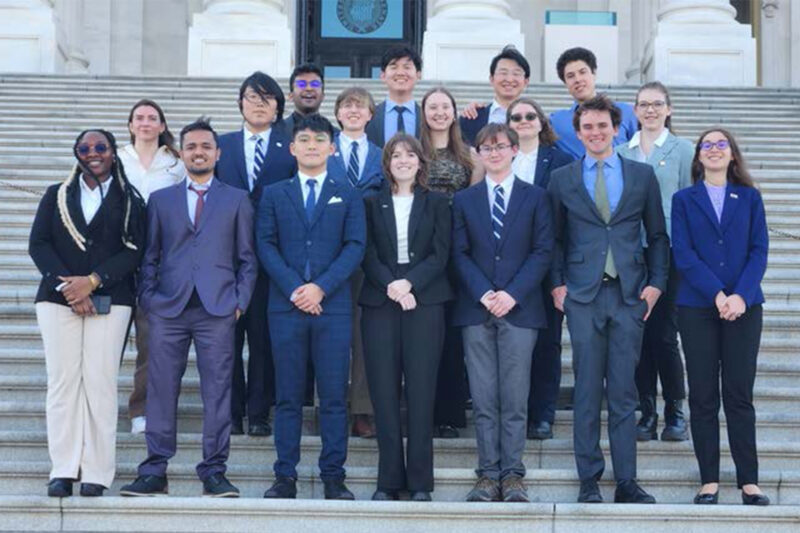In March, a group of Yale students traveled to Capitol Hill in Washington, D.C., to brief Congress on their cutting-edge scientific research and push for improving STEM-related policy.
The pilot program was funded primarily by the Jackson School’s Blue Center for Global Strategic Assessment and the Schmidt Program on Artificial Intelligence, Emerging Technologies and National Power. Ted Wittenstein, director of the Schmidt Program, and Yale astronomy professor Marla Geha served as faculty advisors for the program, which included students from the Jackson School and five other Yale schools.
In preparation for the trip, the group participated in student-run workshops, policy research, rehearsals, and received faculty feedback on campus throughout the spring semester. Their work resulted in nearly 40 meetings with congressional staffers, who were audience to policy presentations that ranged from funding for space scientific research, to the importance of quantum science supply chains, to nuclear power.
“After talking to policymakers, it became clear that they don’t just need scientists and engineers, but people who could translate across disciplines by connecting technical expertise with policy fluency,” said Hagan Han MPP ’26. “It was also empowering to speak directly with lawmakers — especially our own representatives — about the issues we care about most. This program sparked a new interest in working in Congress after graduation.”
Wittenstein explained that the opportunity not only provided professional development for the students, but also created an avenue for their research to create real-world change.
“I am heartened that [the students] are so committed to utilizing their science, technology, and policy expertise to learn how they can help develop solutions for some of the principal global challenges of our time,” said Wittenstein.
Maxwell Zhu MPP ’26, the lead organizer of the program, said he hopes to work across Yale to extend the pilot program into the future. “There’s never been a more pivotal time for scientists to engage with policymakers, and my colleagues answered the call and rose to the challenge,” said Zhu. “I was so impressed by their expertise, insight, and commitment — and from the feedback we’ve received, so too was Congress.”
